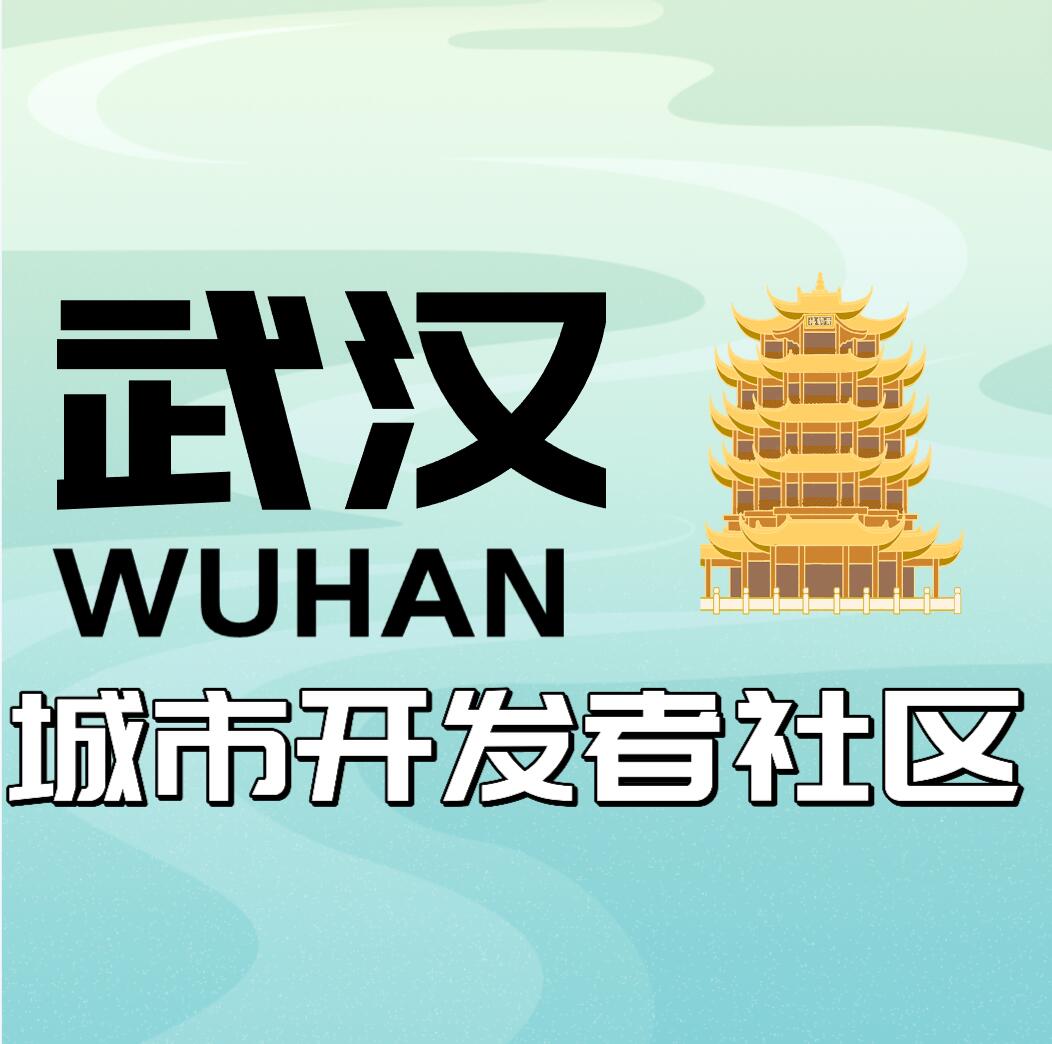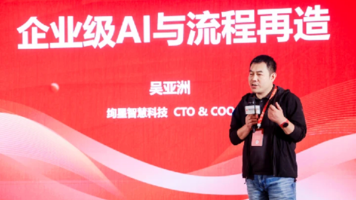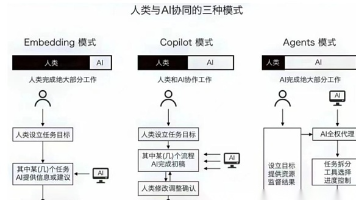“前端架构” 实战篇--离线笔记 第二天
本文介绍了一个基于前端技术的离线笔记工具实现方案,采用localStorage+IndexedDB双存储架构。localStorage负责快速存取当前笔记数据(约5MB容量),而IndexedDB则用于存储历史版本(无明确容量限制),既保证了性能又实现了版本回溯功能。工具支持笔记的创建、编辑、删除和版本管理,核心代码展示了存储初始化、CRUD操作以及双存储协同机制,如自动备份旧版本到Indexed
前端实战:30分钟实现离线笔记工具(localStorage+IndexedDB双存储,附完整代码)
在日常开发中,我们经常需要一个“断网也能用”的笔记工具——毕竟不是所有场景都能联网,而且本地存储数据更安全(不用担心隐私泄露)。今天就带大家用前端技术实现一款离线笔记工具,核心用localStorage存当前笔记、IndexedDB存历史版本,支持笔记创建、编辑、删除、版本回溯,代码可直接复制使用,小白也能快速上手!
一、为什么这么设计?先搞懂核心技术选型
做离线笔记,最关键的是“本地存储方案”的选择。我对比了前端常用的本地存储方案,最终确定**“localStorage+IndexedDB”双存储**架构,理由很简单:
| 存储方案 | 优势 | 劣势 | 本项目中的作用 |
|---|---|---|---|
| localStorage | 轻量、API简单、读取速度快 | 容量小(约5MB)、仅存字符串 | 存当前所有笔记的“基础信息”(id、标题、内容、更新时间),快速加载笔记列表 |
| IndexedDB | 容量大(无明确上限)、支持事务、可查询 | API复杂、需异步操作 | 存每个笔记的“历史版本”,支持版本回溯,避免误删/改后无法恢复 |
简单说:localStorage负责“快速读取当前数据”,IndexedDB负责“安全存储历史版本”,两者搭配既兼顾性能,又解决了多版本管理的需求。
以下是离线笔记工具的核心代码片段,聚焦于双存储设计(localStorage+IndexedDB) 和核心功能逻辑(笔记CRUD+历史版本管理),去除了UI渲染和事件绑定的冗余代码:
1. 核心存储初始化(双存储架构)
// 全局变量:当前选中笔记ID和IndexedDB实例
let currentNoteId = null;
let db = null;
// 初始化IndexedDB(用于历史版本存储)
function initIndexedDB() {
// 打开数据库(名称:noteHistoryDB,版本:1)
const request = indexedDB.open('noteHistoryDB', 1);
// 首次创建或版本更新时创建表结构
request.onupgradeneeded = (e) => {
db = e.target.result;
// 创建"history"表,主键自增,按noteId建立索引(方便查询)
if (!db.objectStoreNames.contains('history')) {
const historyStore = db.createObjectStore('history', {
keyPath: 'id',
autoIncrement: true
});
historyStore.createIndex('noteIdIndex', 'noteId', { unique: false });
}
};
request.onsuccess = (e) => { db = e.target.result; };
request.onerror = (e) => { alert('IndexedDB初始化失败:' + e.target.error); };
}
// 从localStorage加载笔记(当前版本存储)
function loadNotesFromLocalStorage() {
// localStorage存储格式:{ "noteId": { title, content, updateTime }, ... }
const notes = JSON.parse(localStorage.getItem('offlineNotes') || '{}');
const noteIds = Object.keys(notes).sort((a, b) => {
// 按更新时间倒序排列(最新在前)
return new Date(notes[b].updateTime) - new Date(notes[a].updateTime);
});
// 渲染笔记列表(简化版,仅保留核心逻辑)
noteIds.forEach(noteId => {
const note = notes[noteId];
// 生成笔记项DOM(实际项目中需添加到页面)
const noteItem = createNoteItemDOM(noteId, note);
});
}
2. 笔记核心操作(CRUD)
// 新建笔记
function createNewNote() {
// 用时间戳作为唯一ID
const newNoteId = Date.now().toString();
const newNote = {
title: '新笔记',
content: '',
updateTime: new Date().toISOString()
};
// 保存到localStorage
const notes = JSON.parse(localStorage.getItem('offlineNotes') || '{}');
notes[newNoteId] = newNote;
localStorage.setItem('offlineNotes', JSON.stringify(notes));
// 刷新列表并切换到新笔记
loadNotesFromLocalStorage();
selectNote(newNoteId);
}
// 选择笔记(加载到编辑区)
function selectNote(noteId) {
const notes = JSON.parse(localStorage.getItem('offlineNotes') || '{}');
const note = notes[noteId];
if (!note) return;
currentNoteId = noteId;
// 填充编辑区(简化版)
document.getElementById('note-title').value = note.title;
document.getElementById('note-content').value = note.content;
}
// 删除笔记(同步删除localStorage和IndexedDB数据)
function deleteNote() {
if (!currentNoteId || !confirm('确定删除?')) return;
// 1. 从localStorage删除
const notes = JSON.parse(localStorage.getItem('offlineNotes') || '{}');
delete notes[currentNoteId];
localStorage.setItem('offlineNotes', JSON.stringify(notes));
// 2. 从IndexedDB删除所有历史版本
if (db) {
const transaction = db.transaction('history', 'readwrite');
const index = transaction.objectStore('history').index('noteIdIndex');
const request = index.openCursor(IDBKeyRange.only(currentNoteId));
request.onsuccess = (e) => {
const cursor = e.target.result;
if (cursor) {
cursor.delete(); // 删除当前历史记录
cursor.continue();
}
};
}
// 刷新界面
currentNoteId = null;
loadNotesFromLocalStorage();
}
3. 双存储协同:保存与历史版本管理
// 保存笔记(核心函数:同步更新localStorage+备份历史到IndexedDB)
async function saveNote() {
if (!currentNoteId) return;
// 获取当前编辑内容
const newTitle = document.getElementById('note-title').value || '无标题';
const newContent = document.getElementById('note-content').value;
const newUpdateTime = new Date().toISOString();
// 从localStorage获取旧版本
const notes = JSON.parse(localStorage.getItem('offlineNotes') || '{}');
const oldNote = notes[currentNoteId];
// 1. 若内容有变化,先备份旧版本到IndexedDB
if (oldNote && (oldNote.title !== newTitle || oldNote.content !== newContent)) {
await saveToIndexedDB(currentNoteId, oldNote);
}
// 2. 更新当前版本到localStorage
notes[currentNoteId] = { title: newTitle, content: newContent, updateTime: newUpdateTime };
localStorage.setItem('offlineNotes', JSON.stringify(notes));
}
// 保存旧版本到IndexedDB
function saveToIndexedDB(noteId, oldNote) {
return new Promise((resolve, reject) => {
if (!db) { reject('数据库未初始化'); return; }
// 开启事务,插入历史记录
const transaction = db.transaction('history', 'readwrite');
const request = transaction.objectStore('history').add({
noteId: noteId, // 关联的笔记ID
title: oldNote.title,
content: oldNote.content,
saveTime: new Date().toISOString() // 备份时间
});
request.onsuccess = () => resolve();
request.onerror = (e) => reject(e.target.error);
});
}
// 查看历史版本
function showHistory() {
if (!currentNoteId || !db) return;
const transaction = db.transaction('history', 'readonly');
const index = transaction.objectStore('history').index('noteIdIndex');
const request = index.openCursor(IDBKeyRange.only(currentNoteId));
const historyVersions = [];
request.onsuccess = (e) => {
const cursor = e.target.result;
if (cursor) {
historyVersions.push(cursor.value);
cursor.continue();
} else {
// 渲染历史版本列表(简化版)
historyVersions.forEach(version => {
const versionItem = createHistoryItemDOM(version);
});
}
};
}
// 从历史版本恢复
function restoreFromHistory(version) {
// 先保存当前版本到历史(避免丢失)
saveToIndexedDB(currentNoteId, {
title: document.getElementById('note-title').value,
content: document.getElementById('note-content').value
}).then(() => {
// 恢复历史版本内容到编辑区
document.getElementById('note-title').value = version.title;
document.getElementById('note-content').value = version.content;
});
}
核心设计亮点说明:
-
双存储分工:
localStorage轻量存储当前版本,保证快速读写(适合高频访问的笔记列表和当前内容)。IndexedDB大容量存储历史版本,支持事务和索引查询(解决localStorage容量限制和历史版本管理需求)。
-
数据一致性:
保存时先备份旧版本到IndexedDB,再更新localStorage,确保数据变更可追溯;删除时同时清理两种存储,避免数据残留。 -
用户体验优化:
自动保存(输入3秒后触发)+ 历史版本回溯,避免误操作导致的数据丢失,贴近专业笔记工具的核心体验。
通过这些核心代码,可以清晰看到离线笔记工具如何利用前端本地存储能力,实现“断网可用+版本安全”的核心需求。
模块1:本地存储设计(核心)
我们用“双存储”架构解决“当前数据快速读取”和“历史版本安全存储”的需求:
- localStorage操作:
- 存储格式:
{ "noteId1": { title: "标题", content: "内容", updateTime: "时间" }, ... } - 关键函数:
loadNotesFromLocalStorage()(读取)、saveNote()(更新)
- 存储格式:
- IndexedDB操作:
- 表结构:
history表(id: 主键,noteId: 关联的笔记ID,title: 历史标题,content: 历史内容,createTime: 原笔记时间,saveTime: 保存历史时间) - 关键函数:
initIndexedDB()(初始化数据库)、saveToIndexedDB()(存历史)、showHistory()(查历史)
- 表结构:
模块2:笔记基础操作(新建/选择/保存)
- 新建笔记:点击“+”按钮,生成时间戳作为唯一ID,初始化笔记数据并保存到localStorage,然后切换到编辑区。
- 选择笔记:点击左侧笔记项,从localStorage读取该笔记数据,填充到编辑区,同时高亮选中项。
- 保存笔记:
- 手动保存:点击“手动保存”按钮,直接触发保存。
- 自动保存:标题/内容输入时,3秒后自动保存(用
setTimeout实现,避免频繁操作存储)。 - 保存逻辑:先把旧版本存到IndexedDB(历史),再更新当前版本到localStorage。
模块3:历史版本管理(核心亮点)
这是区别于普通记事本的关键功能,避免误删/改后无法恢复:
- 保存历史:每次修改笔记并保存时,自动把“修改前的版本”存到IndexedDB。
- 查看历史:点击“历史版本”按钮,从IndexedDB查询当前笔记的所有历史版本,按时间倒序显示。
- 恢复历史:点击“恢复此版本”,先把当前版本存到历史(防止丢失),再将历史版本内容填充到编辑区。
模块4:界面交互优化(提升用户体验)
- 自动保存提示:保存成功后显示“已自动保存”,2秒后消失,让用户知道数据安全。
- 笔记排序:左侧列表按“最后更新时间”倒序排列,最新的笔记在最前面。
- 空状态处理:无笔记、无历史版本时显示友好提示,避免界面空白。
- 响应式设计:用Tailwind的
grid和md:前缀,在手机/电脑上都有良好的显示效果。
模块5:数据安全与兼容性
- 错误处理:IndexedDB初始化失败、保存历史失败时,弹出提示,避免崩溃。
- 数据格式校验:读取localStorage时,默认用空对象兜底(
JSON.parse(..., '{}')),避免解析失败。 - 浏览器兼容性:支持所有现代浏览器(Chrome、Firefox、Edge),IE浏览器不支持IndexedDB(但IE已淘汰,无需兼容)。
四、实战演示:3步上手使用离线笔记
-
第一步:创建笔记
打开离线笔记.html,点击左上角的“+”按钮,左侧会新增一条“新笔记”,右侧自动切换到编辑区,输入标题和内容(比如“前端学习计划”)。 -
第二步:查看/恢复历史版本
修改几次笔记内容(比如添加“学习Vue3”“学习React”),每次修改后等待3秒(自动保存),然后点击“历史版本”按钮,就能看到所有修改记录,点击“恢复此版本”可回到之前的内容。 -
第三步:删除笔记
选中一条笔记,点击“删除”按钮,确认后笔记会从localStorage和IndexedDB中彻底删除,左侧列表也会同步更新。
五、常见问题与解决方案(小白必看)
问题1:打开文件后,点击“+”按钮没反应?
原因:浏览器的安全限制(本地文件协议file://下,部分浏览器对localStorage的操作有限制)。
解决方案:
- 用Chrome浏览器打开(兼容性最好)。
- 或把文件放到本地服务器(如用VS Code的“Live Server”插件,以
http://协议打开)。
问题2:历史版本按钮点击后没反应?
原因:IndexedDB初始化失败(可能是浏览器不支持或存储权限被禁用)。
解决方案:
- 检查浏览器是否支持IndexedDB(现代浏览器都支持,IE除外)。
- 打开浏览器“设置→隐私和安全→网站设置→存储”,确保“允许网站保存和读取Cookie和网站数据”开启。
问题3:笔记内容不保存?
原因:
- 没有选中笔记(currentNoteId为null)。
- localStorage存储满了(约5MB,一般很难满)。
解决方案: - 确保先选中一条笔记再编辑。
- 清除浏览器缓存(设置→隐私和安全→清除浏览数据→勾选“Cookie和其他网站数据”)。
六、功能扩展建议(进阶学习)
如果想进一步提升这个工具,可以添加以下功能:
- Markdown支持:集成
marked.js,让笔记支持Markdown语法(加粗、列表、代码块)。 - 云端同步:对接阿里云OSS、腾讯云COS,将localStorage的数据同步到云端,实现多设备访问。
- 笔记分类:在localStorage中给笔记添加“category”字段,支持按分类筛选(比如“工作笔记”“学习笔记”)。
- 搜索功能:添加搜索框,通过
Array.filter()筛选标题/内容包含关键词的笔记。
七、总结
这款离线笔记工具用“localStorage+IndexedDB”双存储解决了“离线可用”和“版本管理”的核心需求,代码可直接复制使用,适合前端新手学习本地存储、DOM交互、事件监听等知识点。
作为前端开发者,我们可以充分利用浏览器提供的本地存储能力,开发更多轻量级离线工具(如Todo清单、密码管理器),既提升自己的技术能力,又能解决实际需求。
如果觉得有用,欢迎点赞收藏,也可以在评论区分享你的扩展思路!

为武汉地区的开发者提供学习、交流和合作的平台。社区聚集了众多技术爱好者和专业人士,涵盖了多个领域,包括人工智能、大数据、云计算、区块链等。社区定期举办技术分享、培训和活动,为开发者提供更多的学习和交流机会。
更多推荐
 已为社区贡献1条内容
已为社区贡献1条内容








所有评论(0)